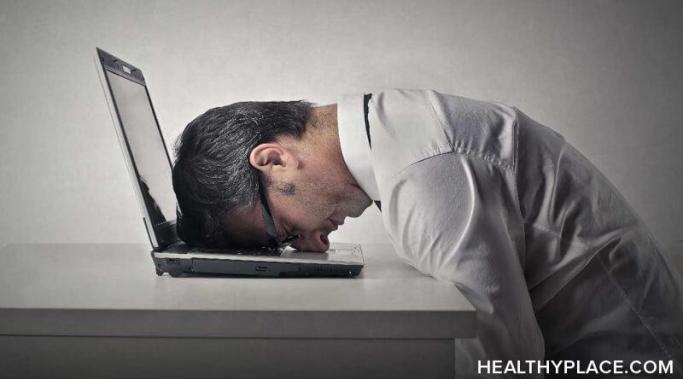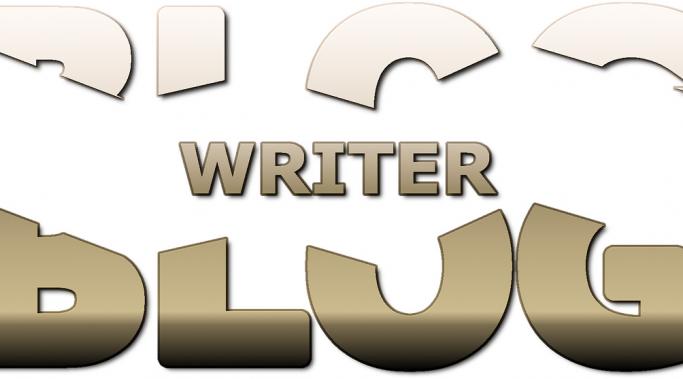I've been writing about bipolar for 20 years. Yes, this is my 20th anniversary. And since 2000, I have been writing about bipolar disorder professionally. I suppose that means I'm old. It also means that I have written a lot. I've written over 700 blog articles for HealthyPlace in the last 13 years. I've done about the same on my own blog. On top of those 1400 posts, I've written hundreds and hundreds of articles on the main part of HealthyPlace and elsewhere (not all about bipolar disorder). The grand total is unknown, but it's at least 2000, anyway. And the question I get asked a lot is, how can you write about bipolar disorder so much? How can you do that for 20 years?
Writing
I write about some things that can trigger those with depression so it’s important for readers to know how to deal with depression triggers in blog posts. Understanding how to deal with depression-triggering blog posts can protect you from negative emotional effects and worsening symptoms.
I know it sounds weird when a blogger says “don’t talk to a blogger for help.” After all, aren’t we in it to help? Don’t we want comments? In fact, it’s true; I do hope to help people and I do love to see the comments of my readers. But if you’re in serious mental illness distress, you need to take an action step and not talk to a bipolar blogger.
I have major guilt when my bipolar interferes with work. I have this thing where I think that bipolar is just an excuse for laziness and that if I was a just a better person bipolar wouldn’t interfere with my work. Even though I know this isn’t true, it seems to be the only thing I think about when bipolar rears its ugly head and deleteriously affects my work.
I’m a depressed person, or, if you like, I’m a person you suffers from depression. And, of course, I’m a person that writes and speaks about depression – a lot. So someone recently asked me, “Doesn’t talking about depression all the time make you more depressed?”
Well, it depends on your perspective.
I deal with suicide a lot in my writings. I’ve talked about people who have just attempted suicide, those left behind by suicide and the family and friends of those who have attempted suicide, among many other subjects. That’s because suicide is a subject that I think is very important. It’s critical to break down the walls of silence that keep people who have contemplated or attempted suicide at arm’s length from everyone else. Thinking about suicide or attempting suicide doesn’t mean there’s anything wrong with you; it just means that you have sought a way out of an extraordinary amount of pain that wasn’t the best way.
But the way in which suicide is written about matters because of a phenomenon known as suicide contagion. This is the act of copycat suicides and believe it or not, it is a real problem. The way a suicide is reported in the media actually affects the number of people who attempt suicide.
So if you plan on talking about suicide – and I encourage you to do so – think about these guidelines on how to do it.
Since I’ve started writing for HealthyPlace I’ve learned a lot about what you’re not supposed to say about mental illness. Some classics are the word “crazy” and not referring to oneself as “bipolar” directly.
In other words, I’m not allowed to say I’m a crazy bipolar.
There are many other things I’m not allowed to say too. “Mental health” can only be used in some cases whereas “mental illness” must be used in others. And then there’s “behavioural health” and the myriad of rules around talking about suicide. One could get permanent writer’s block worrying about ticking off some group of people who care about some specific word.
So I have a rule. I do what I want. And I tick off some people. It’s not on purpose; it’s just that if I didn’t, how in the heck would I write?
Last week, I wrote a post stating that “Natasha Tracy” is my nom de plume – it is my writing name and not my legal name. Some people showed concern over this and felt it was inconsistent with my convictions regarding stigma and standing up for one’s rights.
I would now like to respond to these concerns regarding my own choices, writing and reasons.
If you follow me here, or particularly elsewhere, you might have noticed there are some very vocal people who hate me. Mental illness is contentious, and some people take it to a personal level. That’s people for you.
Sometimes I talk about these people. I call them “the nasties.”
But today is not about them. Today is about celebrating all the wonderful, amazing people who support me, Breaking Bipolar and the mental health community in general.
Many sites on the internet dedicate themselves to serving up health information, but you should always question the source of that information.






![MP900404982[1]](/sites/default/files/styles/blog_listing/public/uploads/2012/11/MP9004049821.jpg?itok=yUCTqWP9)

